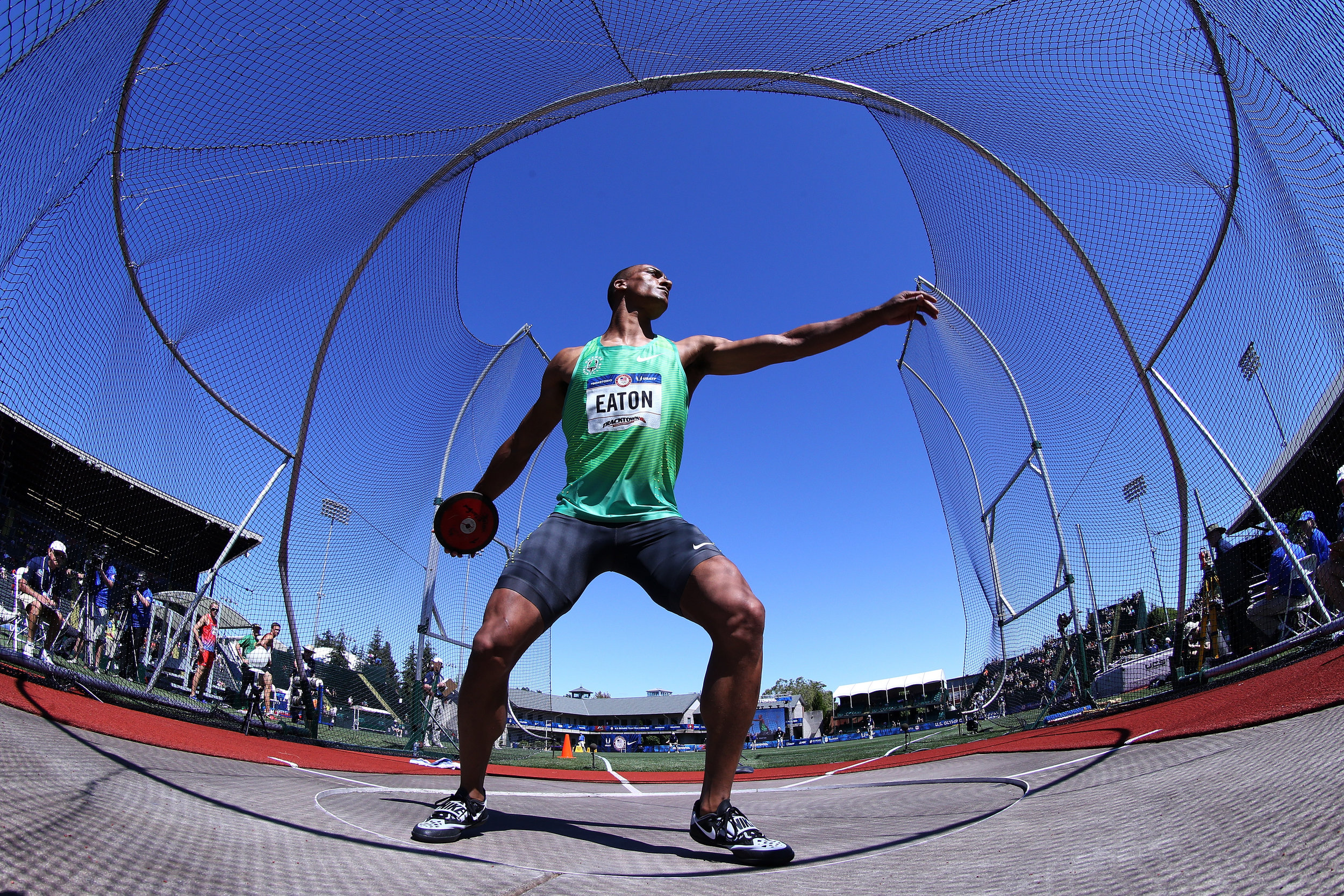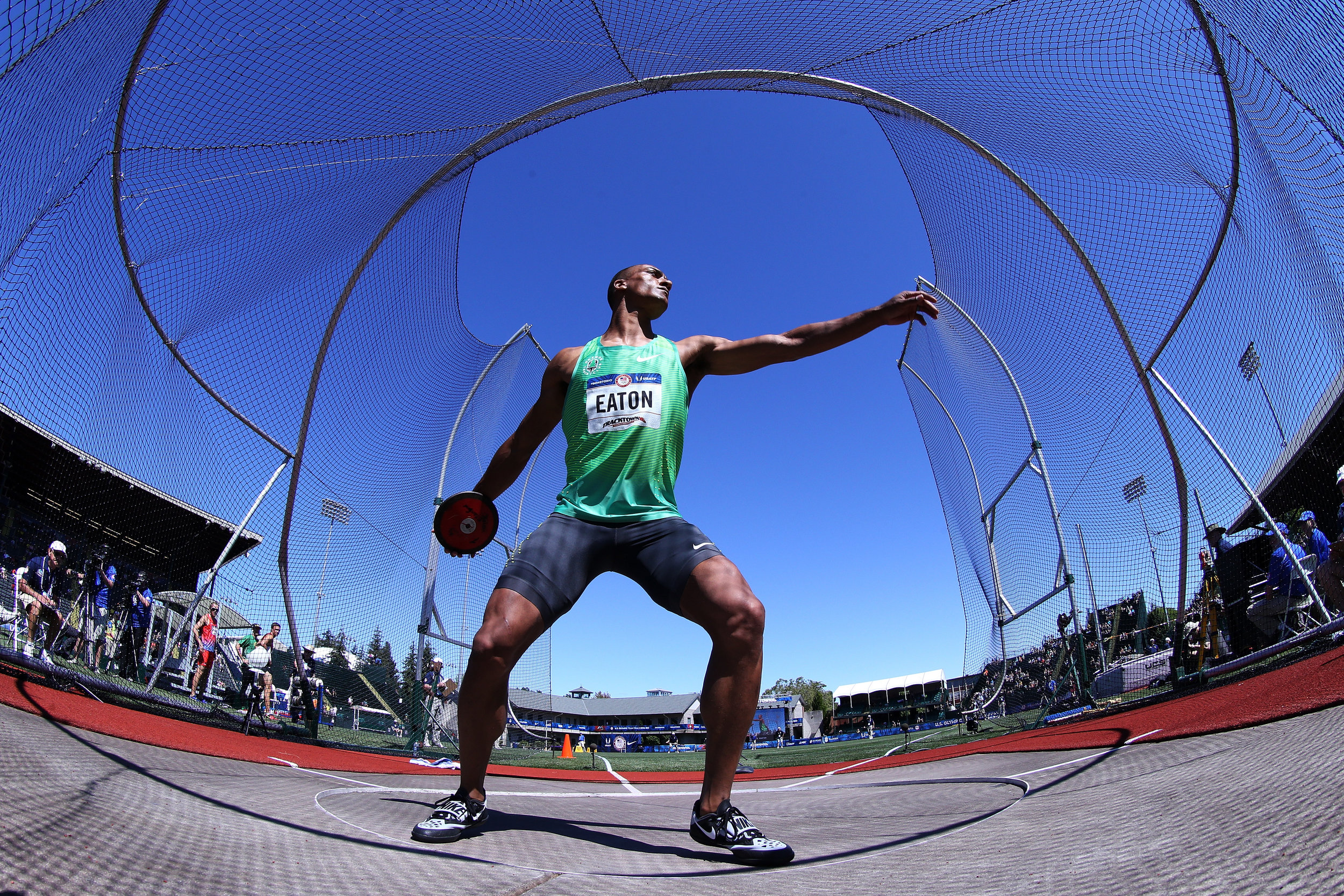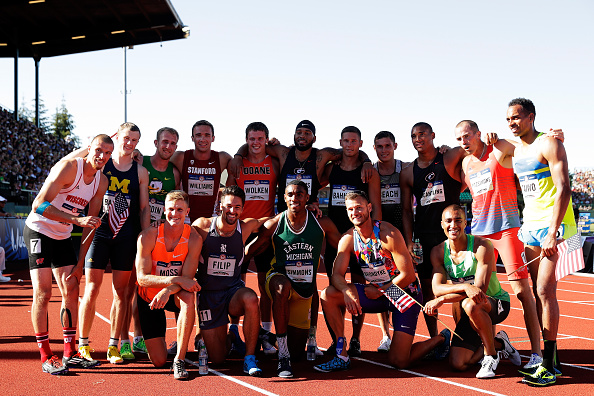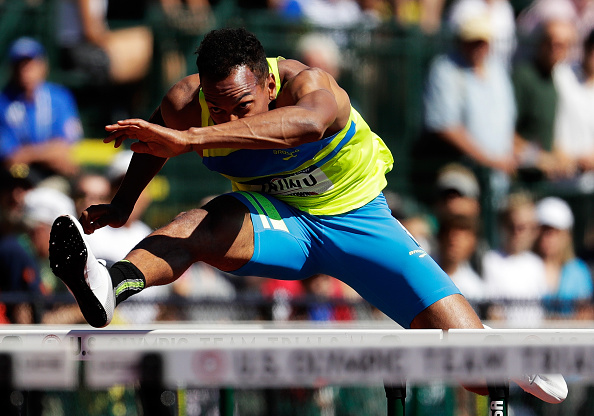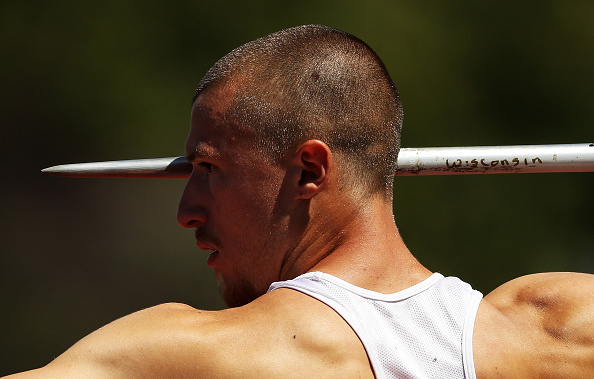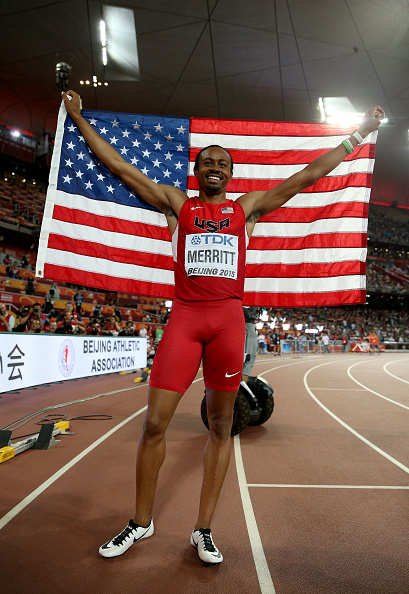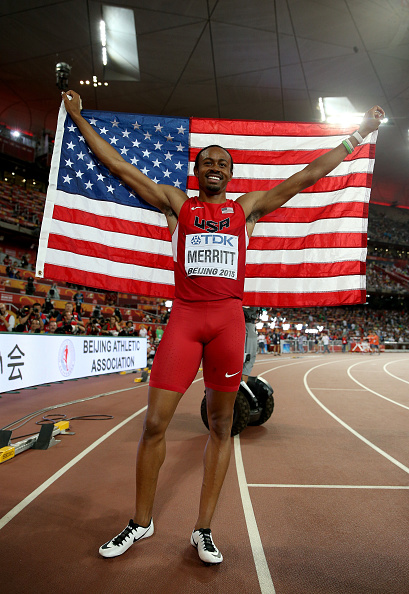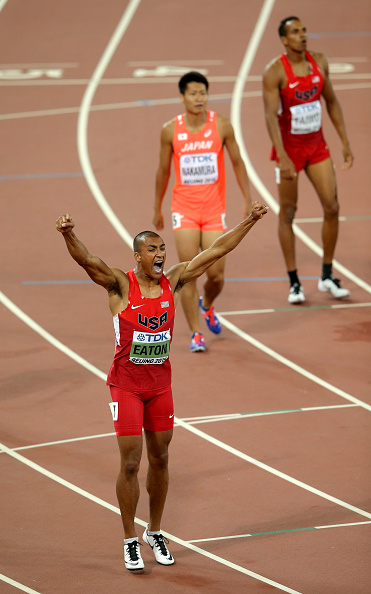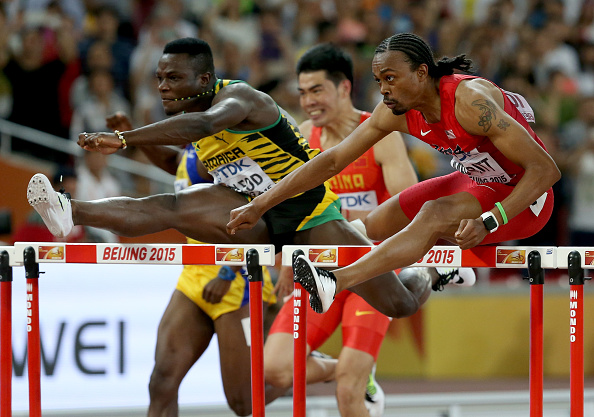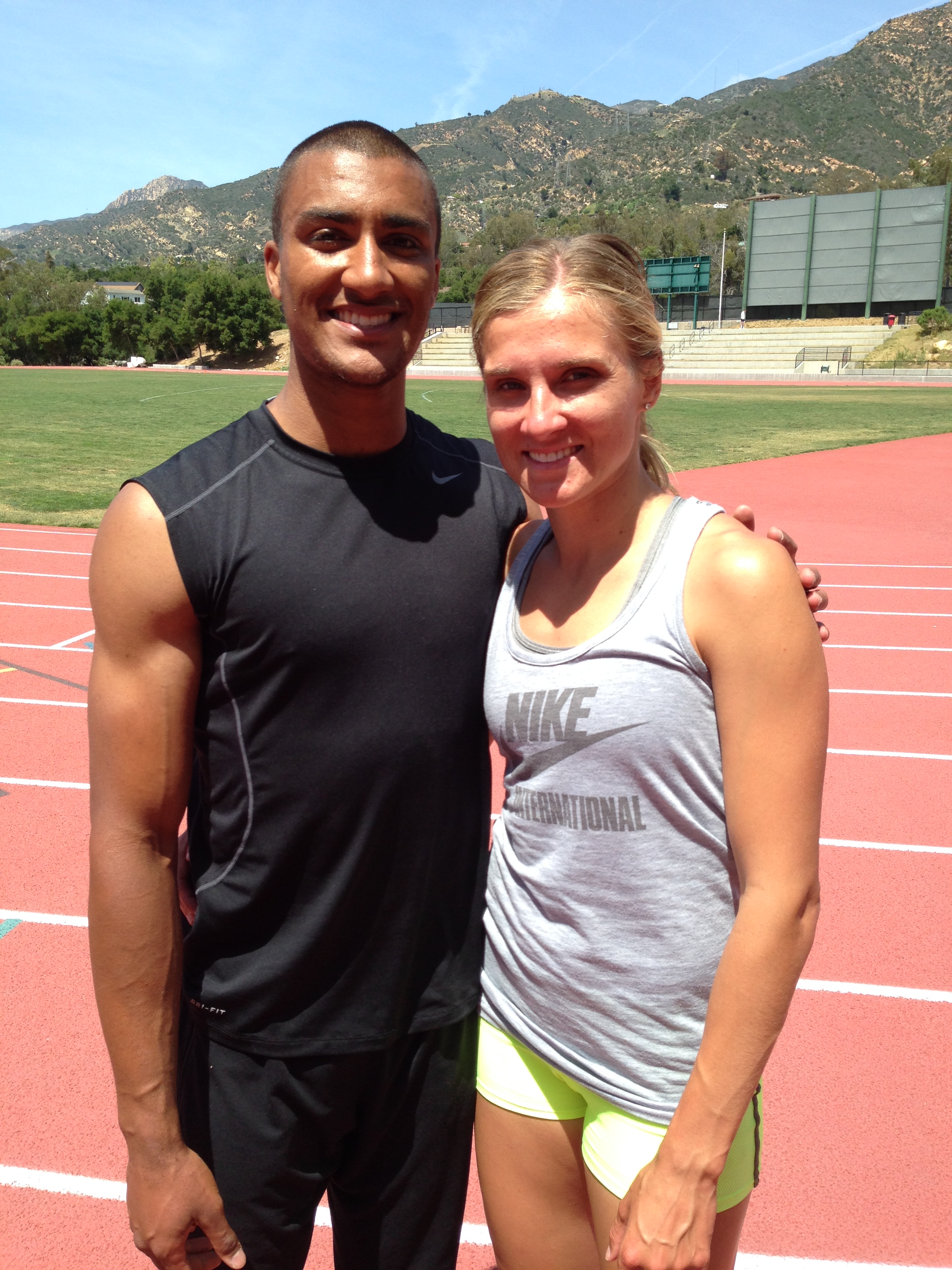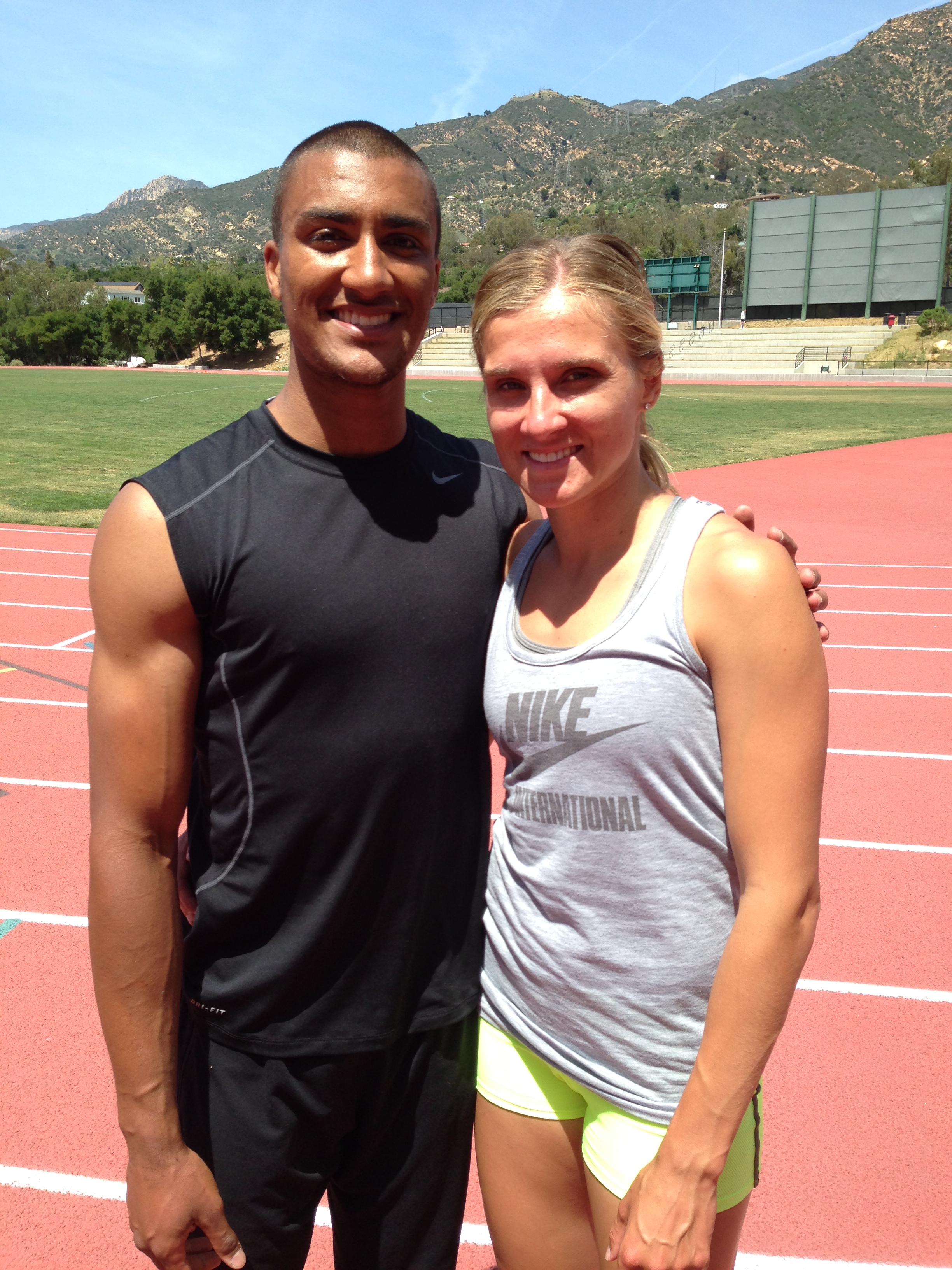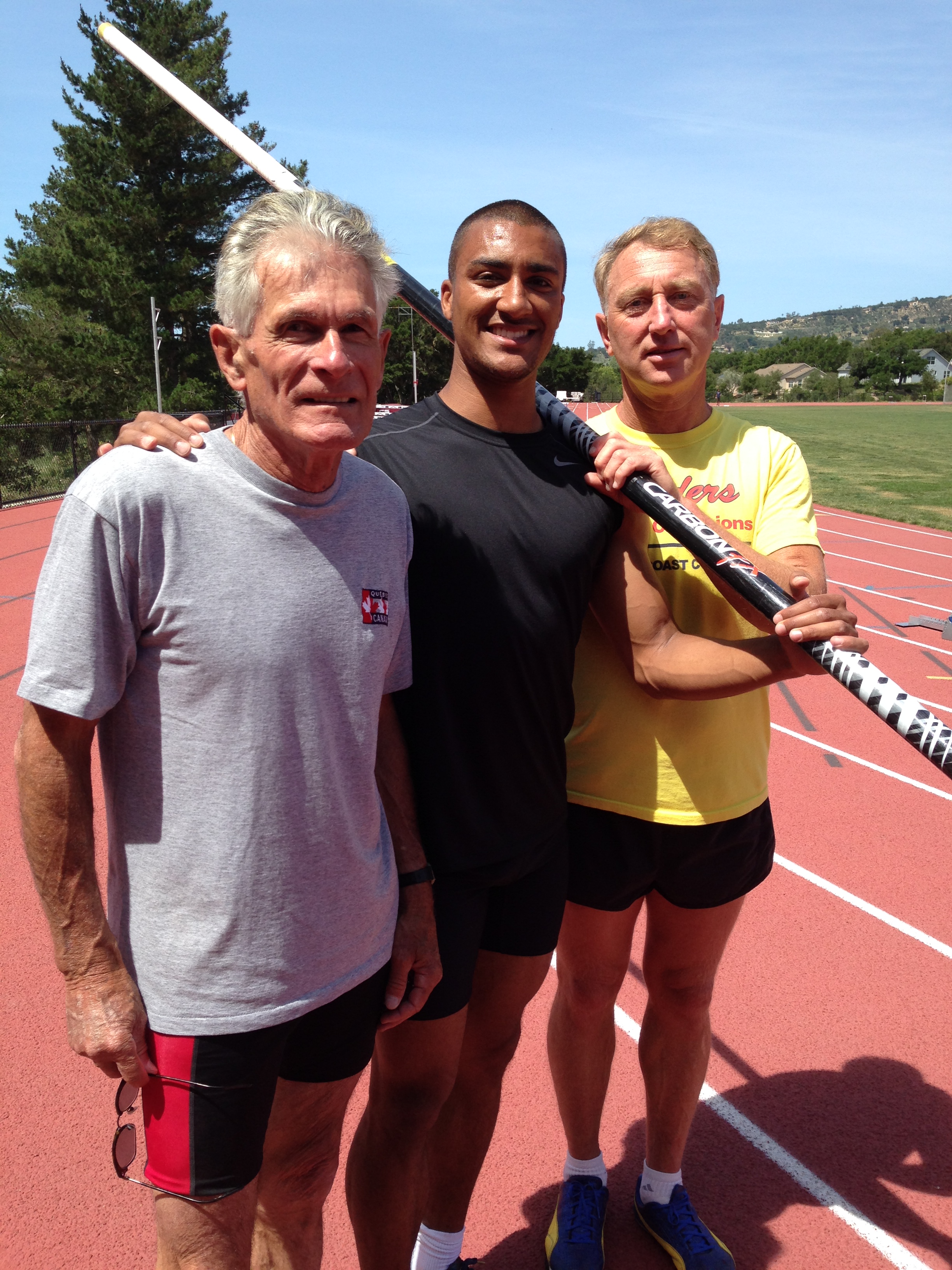EUGENE — On this Fourth of July, when we celebrate America and Americans, here’s to a celebration of the U.S. decathlon champion, Ashton Eaton. Not to put too fine a tag on it but: Ashton Eaton is the anti-Donald Trump.
The very last thing Ashton Eaton would have done after winning — again — the decathlon here at the 2016 U.S. Olympic Trials would have been to proclaim, “I’m going to Rio and my point total is going to be huuuuuge!”
Nor did he say, “I have very big hands.”
As if.
Trump, as this year’s presidential politics has proven, is divisive, bigoted, obnoxious, loud and polarizing.
Eaton’s greatness, the position he has earned on the public stage, has come without him bragging about how great he is. His actions speak volumes. But when he does talk, he does so with intellect, eloquence, humor and, most important, humility.
Moreover, Ashton Eaton isn’t building a wall. He’s building bridges.
Eaton represents the emergence of the multicultural America that Trump, in particular, finds so threatening. Ashton grew up in central Oregon; his father is black, his mother white. As a single mother, Roz Eaton worked several jobs to see after her son, at a law office by day and waitressing at night.
Ashton, 28, and his wife, the Canadian multi-event talent, Brianne Theisen-Eaton, 27, are the model young couple ever mom and dad would like to see their kids grow up to be.
An Eaton story: Ashton and Brianne could drive anything. They drive a white Hyundai Elantra. It gets the job done. There’s no need for more.
The Eatons come by this honestly. It’s not just them. Their coach, Harry Marra, who is one of the most genuine people you might find not just in sports but in any endeavor, drives a 25-year-old white Mazda Miata. “It still looks good, man,” Marra said, laughing.
“It’s a simple statement and I know I have said it a million times,” Marra said, and referring specifically to Eaton, “Everybody knows he’s a great athlete. But he’s a better human being.”
Another Eaton story: at the Olympics, they stay not in a five-star hotel but in the Olympic Village, he with the Americans, she the Canadians. In London four years ago, he brought her dinner and vice-versa.
Ashton Eaton is the London 2012 decathlon gold medalist. He is the world record-holder in the decathlon, the 10-event discipline that for generations has come to define the world’s best all-around athlete.
In 2012, here at venerable Hayward Field at the 2012 U.S. Trials, Eaton set what was then a decathlon points world record: 9,039.
Last August, at the world championships in Beijing, he upped that to 9,045. He ran the 400 meters in 45 seconds flat.
To give you an idea of how good that is: LaShawn Merritt on Sunday won the open 400 in 43.97.
To further emphasize how good 45-flat that is: Bill Toomey had run the prior fastest decathlon 400: 45.68, in the 1968 Mexico City Olympics. Bill Toomey!
Eaton, according to the authoritative track and field website Tilastopaja, has the 271st best performance in history in the 400; 147th in the 400-meter hurdles (48.69, in 2014); 191st in the long jump (8.23 meters, or 27 feet, 2012); and 152nd in the 110-meter hurdles (13.35, 2011).
To further amplify Eaton’s excellence in the all-around events, he is the Moscow 2013 world championship gold medalist (8,809 points); the Daegu 2011 world silver medalist; and a three-time world indoor gold medalist in the seven-event heptathlon, 6,470 points in Portland this past March, 6,632 in Sopot, Poland, in 2014 and a world-record 6,645 points in Istanbul, Turkey, in 2012.
It was in Portland that the Eatons, husband and wife, provided one of the sport’s indelible images. After Brianne clinched the pentathlon, Ashton, in his warm-ups amid the long jump competition, bolted onto the track to embrace his wife.
For all that he has accomplished, Eaton’s performance over two days in 2016 at Hayward may have been his best ever.
He was not only hurt. He was hurting.
Coming in, he had a quadriceps problem in his left leg. Then the right hamstring started acting up.
The second-day discuss throw — he fouled on his first attempt, threw just 122 feet on No. 2, which was good for 15th, then moved up to 10th on the third throw with a 135-9.
After that, he went second in the pole vault, fourth in the javelin and wrapped it all up with a fourth-place 4:25.15 in the 1500.
Total: 8750 points.
If 8750 wasn’t a world record, well — none of the decathletes heading to Rio, none of them from anywhere in the world, has a personal best that matches what Eaton did here over the weekend.
Jeremy Taiwo took second with 8425, Zach Ziemek third with 8413.
The nature of track and field — with the potential for injury and collision — is that anything can happen, anytime. That was never more evident than on Monday, when two of the favorites in the women’s 800, Brenda Martinez and Alysia Montaño, collided with about 150 meters to go, at roughly 1:36 in the race, Martinez staggering to seventh in 2:06.63, Montaño limping in to eighth about a minute later after picking herself, 3:06.77. At the finish line, she dropped to her knees in tears.
Kate Grace won, in 1:59.1; Ajee’ Wilson got second, 1:59.51; Chrishuna Williams third, 1:59.59.
https://twitter.com/NBCOlympics/status/750130824977100801
“Anything can happen,” Montaño would say later.
She also said of picking herself up off the track with about 150 meters to go, the others far ahead, “You get up and you’re, like, really far away, and your heart breaks.”
Ashton Eaton has been a model of consistency in a discipline in which consistency is everything.
After so many competitions, he said at Sunday’s post-event news conference, “Mentally, I think what happens when you get older is you have more experience,” adding, “If I’m in a situation in a decathlon, I have confidence I can handle it.”
That was the answer to the first question.
The second had to do with competing while injured.
Then, and this is testament to the kind of person Ashton Eaton is, he said, “I’m not answering any more until these guys get some questions.”
The ladies and gentlemen of the press dutifully asked some questions of Taiwo, who is incredibly thoughtful, and Ziemek, who is super-tough, having done another decathlon at the NCAAs just weeks ago.
“As soon as I crossed the line,” meaning at the final 1500, Taiwo said, “I remembered all those times: this is the hardest journey you’ve ever had. This is a deciding moment in your life, at 26. You know, you’ve had to beg, you’ve had to do this, you’ve wanted to give you, you’ve wanted to not go to practice — just go work at Whole Foods or something, because this hurts.
“Being a decathlete all year round — what are you doing? How are you going to pay for this? Just all that in my mind — I was so grateful.”
When the questioning turned back to Eaton, he was asked about the two charities — Right to Play and World Vision — to which he and his wife donate their time.
“For us, as a young couple to be put in a situation where you get to help someone — that’s pretty powerful stuff.
“The first experience these organizations gave us, what kind of I guess power we have in that area, was pretty emotional. So we feel really strongly about those organizations and organizations in general.”
He paused, choosing his words carefully: “As athletes, you really see a lot of — the Instagram paradigm, where it’s just, ‘Me, me, me, me, me.’ But when you realize [the alternative]: ‘Give, give, give, give’ — it’s very interesting.” Here, he worked hard to control his emotion: “It’s good.”
Eaton was asked, too, the obvious question: what can be done to get the decathlon back to the immensely popular event it once was?
“I think the question to ask is why was it so popular before and what happened to make it fade?
“But — I have noticed things in general tend to follow, like, an up-and-down trend. Perhaps in four years you’ll see decathlon being popular for some unknown reason. And for some unknown reason it started becoming unpopular a while ago.
“I’m not sure what to do to make in order to make it more popular. I think the media tend to have a lot of say in what gets promoted or not. So maybe if you guys — I don’t know. I don’t want to say anything right now but I feel like we train really hard to perform really well. We set ourselves to really high standards. Athletes are always set to super-high standards. What standards are the media setting for themselves? What is it like when you guys compete? Or do you compete at all? It’s an interesting question, a great question.”
The murmur from the assembled press: my friend, have you seen the economic upheaval in our business?
Eaton laughed: “You’re broke, too. So there it is.”
One final Eaton story.
Not content on Sunday with having to answer or forward questions, he decided to play guest moderator, too — another way to direct the spotlight onto the others who, it should be emphasized, had just made the Olympic team, too.
Turning to Taiwo and Ziemek next to him, Eaton asked, “Did you know, like in your mind, did you have the possibility that I could possibly do this? And is there any way you can articulate a possibility becoming a reality?”
Here is the mark of a truly great champion. He brings out the best in those around him.
“To be able to do it,” Ziemek said, “shows how much work I was able to put in and, I mean, doing a decathlon is so great because anything can happen.”
“I think that last statement that Zach made is one that stays in your mind,” Taiwo said. “In a decathlon, anything can happen. After the first day, I felt like, hey, this is going really well. But I still have five more events tomorrow. So I can’t get ahead of myself.
“There are ups and downs. And everybody knows Dan O’Briens’s story for trying to make the 1992 team, in Barcelona. You can be the best athlete in the world, and set the world record later but if you don’t perform at these Trials, the American Trials — these people are the best athletes in the world.”
O’Brien famously failed at the 1992 Trials to clear the bar on all three of his attempts at the pole vault; he didn’t make the team. He would come back to win Olympic decathlon gold at the Atlanta 1996 Games.
“You’ve got to be on it,” Taiwo said. “That now becoming a reality — it just makes every second that you questioned the journey, every second that you questioned if you are too tired or making excuses for yourself, you know it really just blows that all away.
“It makes you say, ‘Hey, I did everything right.’ “

